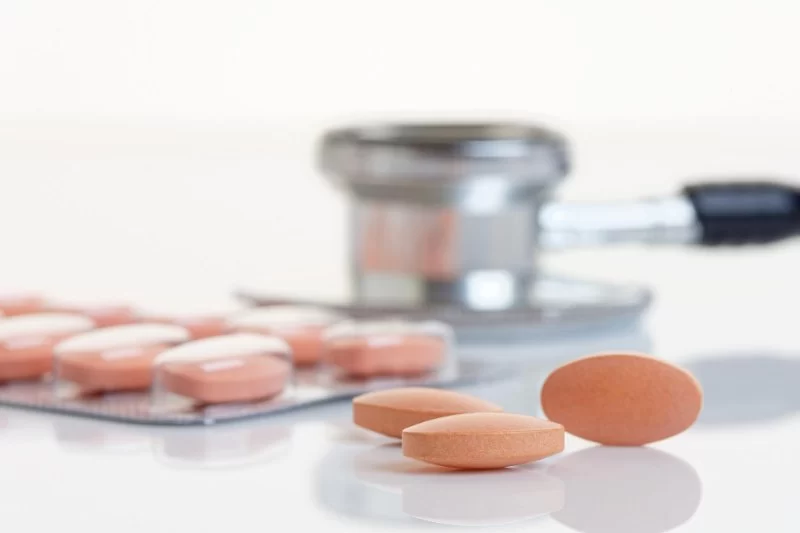Cholesterol-Lowering Medications: Beyond Statins – Exploring Alternative Options
For many people, statins are the go-to medications for lowering cholesterol and reducing the risk of heart disease. However, statins are not the only option available. For some individuals, statins may not be effective, or they may cause unwanted side effects. In these cases, exploring other cholesterol-lowering medications can offer effective alternatives. In this article, we will discuss the range of cholesterol-lowering options available, including those beyond statins, and what you should know before considering them.
- 1. What Are Statins?
- 2. Why Are Some People Unable to Take Statins?
- 3. Alternatives to Statins
- 4. Other Lifestyle Changes for Cholesterol Management
- 5. When to Consult Your Doctor
1. What Are Statins?
Statins are a class of drugs that lower cholesterol by inhibiting the enzyme responsible for producing cholesterol in the liver. By reducing the liver's cholesterol production, statins help decrease the level of LDL (low-density lipoprotein), commonly referred to as "bad cholesterol," in the bloodstream. Statins are highly effective in lowering cholesterol and reducing the risk of heart disease and stroke. However, they do not work for everyone and come with some potential side effects.
2. Why Are Some People Unable to Take Statins?
While statins are commonly prescribed, not everyone can take them. Some people experience side effects such as muscle pain, liver damage, or digestive problems. Others may have medical conditions or take medications that interact negatively with statins. For those who cannot tolerate statins or for whom statins are not effective, other cholesterol-lowering options are available. Understanding these alternatives is crucial in managing cholesterol levels effectively.
3. Alternatives to Statins
There are several medications available that can help lower cholesterol levels without the use of statins. Some of the most commonly used alternatives include:
- Ezetimibe (Zetia): Ezetimibe works by reducing the amount of cholesterol absorbed by the small intestine. This medication is often used in combination with statins, but it can also be used alone for those who cannot tolerate statins.
- Bile Acid Sequestrants: These medications, such as cholestyramine and colesevelam, help lower cholesterol by binding to bile acids in the intestines, which then prevents the reabsorption of cholesterol. This process helps lower LDL cholesterol levels.
- PCSK9 Inhibitors: PCSK9 inhibitors, such as alirocumab (Praluent) and evolocumab (Repatha), are newer injectable medications that target a specific protein involved in cholesterol regulation. They can dramatically lower LDL cholesterol and are typically prescribed when other treatments have failed.
- Fibrates: Fibrates, including gemfibrozil and fenofibrate, primarily target triglycerides (another type of fat in the blood) and can help lower LDL cholesterol in some individuals. They may also raise HDL ("good cholesterol") levels.
- Niacin (Vitamin B3): Niacin can help reduce LDL cholesterol and triglycerides while increasing HDL cholesterol. However, it is not commonly used due to potential side effects such as flushing and liver damage.
Each of these alternatives comes with its own set of benefits and risks, and it's essential to discuss them with your healthcare provider to determine the best treatment option for your individual needs.
4. Other Lifestyle Changes for Cholesterol Management
In addition to medications, certain lifestyle changes can significantly impact your cholesterol levels. Here are some strategies that can help manage cholesterol effectively:
- Dietary Changes: Eating a heart-healthy diet, rich in fruits, vegetables, whole grains, and healthy fats (such as those found in fish and olive oil), can help lower cholesterol naturally.
- Exercise: Regular physical activity, such as brisk walking, swimming, or cycling, can help raise HDL cholesterol levels and lower triglycerides.
- Weight Management: Losing excess weight, especially around the abdomen, can help lower overall cholesterol levels and reduce the risk of heart disease.
- Smoking Cessation: Quitting smoking can improve HDL cholesterol levels and benefit heart health.
- Limiting Alcohol Consumption: Reducing alcohol intake can help improve cholesterol levels and overall heart health.
By adopting a healthier lifestyle, many people can achieve significant improvements in their cholesterol levels and reduce their need for medications.
5. When to Consult Your Doctor
Before starting any medication or making significant lifestyle changes, it's important to consult your healthcare provider. They can assess your cholesterol levels, medical history, and overall risk for heart disease. Your doctor can then recommend the most appropriate treatment options, whether that involves medications beyond statins or lifestyle changes. They can also monitor your progress and make adjustments as needed to ensure your cholesterol is well-managed.
If you're concerned about your cholesterol levels or struggling with side effects from statins, don't hesitate to seek advice. At HeartCare Hub, we offer a range of resources to help you make informed decisions about your heart health. With the right treatment and lifestyle changes, you can take control of your cholesterol and improve your overall well-being.





















